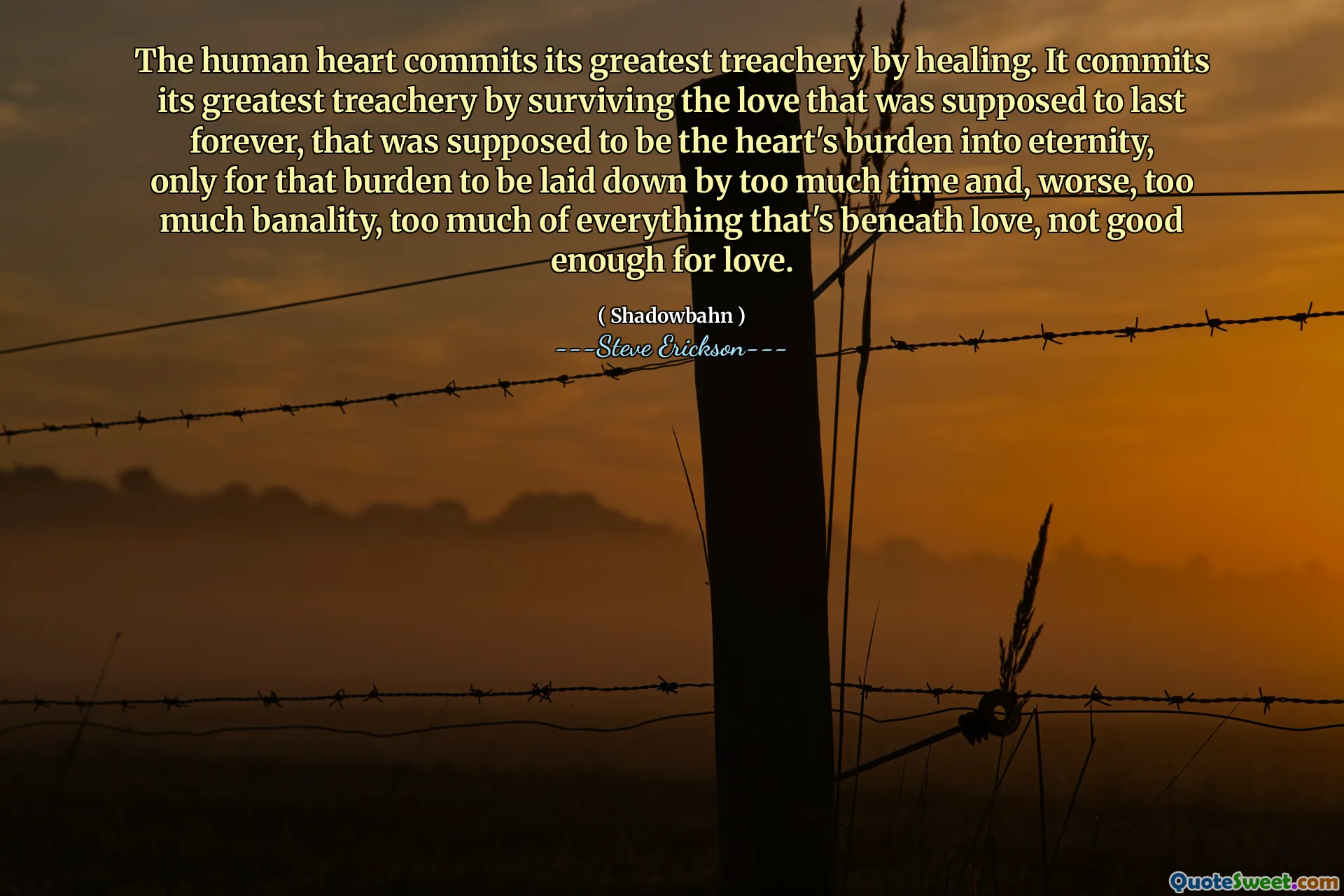
The human heart commits its greatest treachery by healing. It commits its greatest treachery by surviving the love that was supposed to last forever, that was supposed to be the heart's burden into eternity, only for that burden to be laid down by too much time and, worse, too much banality, too much of everything that's beneath love, not good enough for love.
In Steve Erickson's book, Shadowbahn, the quote reflects on the paradox of the human heart and its capacity to heal. It suggests that while healing is a natural process, it comes with a sense of betrayal against the love that was expected to endure indefinitely. This concept emphasizes the idea that love, once lost, leaves a profound wound, and the heart's ability to move on can feel like a deep treachery against those feelings.
The passage also explores the notion that time and the everyday mundane aspects of life can dilute the intensity of love. It implies that the heart's survival and eventual healing can diminish the significance of a once-sacred bond, replacing it with an acceptance of mediocrity. This transformation raises questions about the nature of love, loss, and the human experience, revealing a struggle between holding on to cherished memories and embracing the present.







